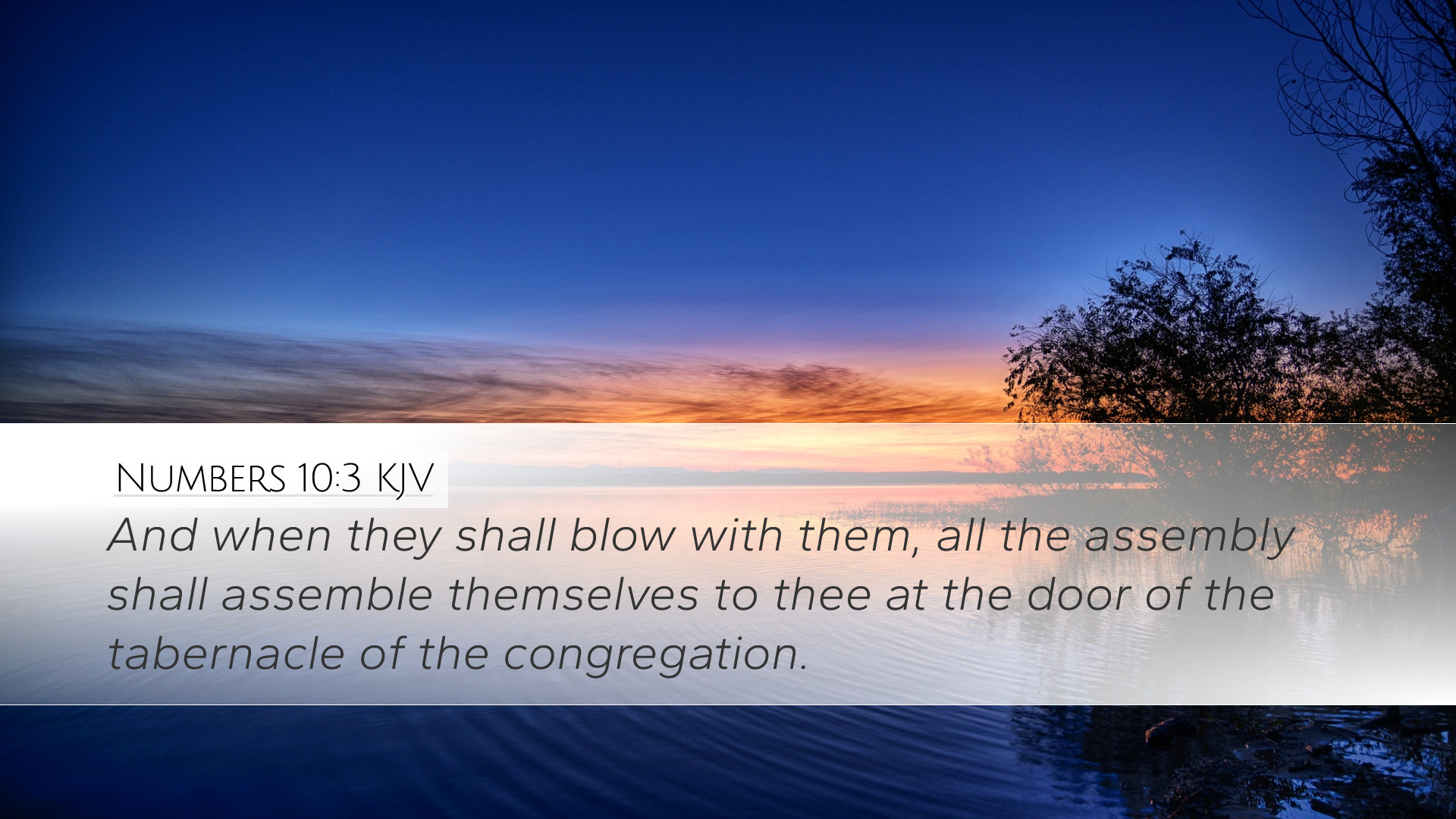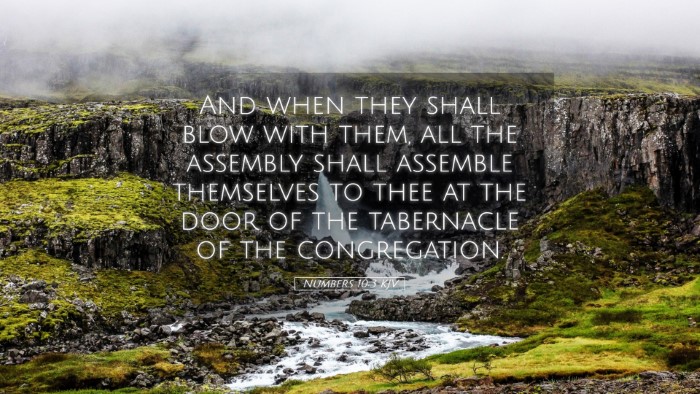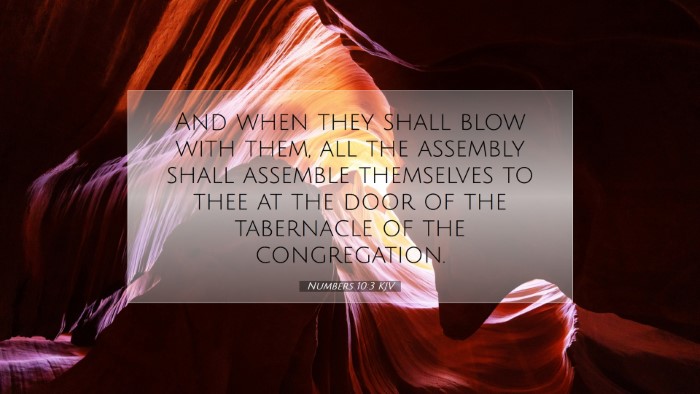Commentary on Numbers 10:3
Bible Verse: Numbers 10:3 - "And when they shall blow with them, all the assembly shall assemble themselves to thee at the door of the tabernacle of the congregation."
Introduction
This verse is a directive given to the Israelites concerning the use of trumpets. It holds not only a historical significance in the context of Israel’s journey through the wilderness but also carries profound theological implications. Under this commentary, we will explore insights from esteemed public domain commentators such as Matthew Henry, Albert Barnes, and Adam Clarke, providing a comprehensive understanding of this scripture.
Contextual Background
The Book of Numbers depicts the Israelites' journey to the Promised Land. The events described in this book occur after the Israelites' liberation from Egypt and before their entry into Canaan. Numbers 10 marks a transition in their journey, as it details the organizational structure of the Israelite camp and the religious practices that were to guide the community. The trumpets are introduced in this chapter as a tool for communication, signaling significant events, and maneuvering the camp.
Insights from Matthew Henry
Matthew Henry, a well-known biblical scholar, emphasizes the role of trumpets as instruments signifying the presence of God among His people. He elucidates that the blowing of trumpets was intended to summon the congregation for different occasions such as sacrifices, feasts, and during times of war. Henry remarks that the trumpet serves not only as a call to gather but also as a symbol of unity, drawing attention to the communal aspect of worship and obedience to God.
- Call to Assembly: The gathering of the people is significant, as it represents unity and collective worship.
- Divine Instruction: The command to use the trumpets indicates God's desire for His people to adhere to His instructions closely.
Insights from Albert Barnes
Albert Barnes provides insight into the practical application of the trumpets in Israelite society. He addresses the purpose behind the trumpets, noting that they served as a signal for various activities, such as moving the camp or calling the leaders for consultation. Barnes emphasizes that the use of trumpets highlights God's order in the community, ensuring that everyone knew their role and response to any situation.
- Order and Organization: The structured use of the trumpets underscores the importance of order within the congregation, reflecting God’s nature of bringing order out of chaos.
- Symbol of God’s Guidance: The sound of the trumpets can be seen as a metaphor for God's voice directing His people.
Insights from Adam Clarke
Adam Clarke offers a theological reflection on the significance of the act of blowing the trumpets in relation to the Old Covenant. He discusses how this act foreshadows the call of the greater assembly of believers in Christ. Clarke points out that the calling together of the assembly at the tabernacle serves as a type of the gathering of the church, which is called to assembly in worship and fellowship. He emphasizes that this gathering represents a precursor to the assembly of believers in the New Testament.
- Typological Significance: Clarke articulates that the trumpets can be seen as a foreshadowing of the Christian calling to worship and gather as a body of Christ.
- Unity in Worship: The trumpet call symbolizes the need for unity, as believers are called together to worship in spirit and truth.
Theological Reflections
The theological implications of Numbers 10:3 resonate deeply throughout scriptural history. The imperative for the congregation to assemble emphasizes God's desire for His people to engage in community worship. As the trumpets were blown, it was not merely a call to gather physically but an invitation into a relational space where the Divine presence could be experienced among them.
Moreover, the communal gathering is essential for spiritual growth and mutual encouragement. Biblical passages throughout the New Testament echo this sentiment, compelling believers to not forsake the assembling of themselves together (Hebrews 10:25). The act of gathering underscores the necessity of communal faith, where believers support and uplift one another, much like the early assembly at the tabernacle.
Conclusion
In conclusion, Numbers 10:3 is rich with meaning and importance for both the Israelites in their historical context and for modern readers seeking understanding of communal worship and obedience to God. The insights from Matthew Henry, Albert Barnes, and Adam Clarke draw attention to the necessity of order, the unity of the congregation, and the call to worship—elements that remain relevant for the church today. Understanding the significance of this scriptural mandate encourages pastors, theologians, and students to reflect on the essential nature of gathering as a community to experience the transformative presence of God.


